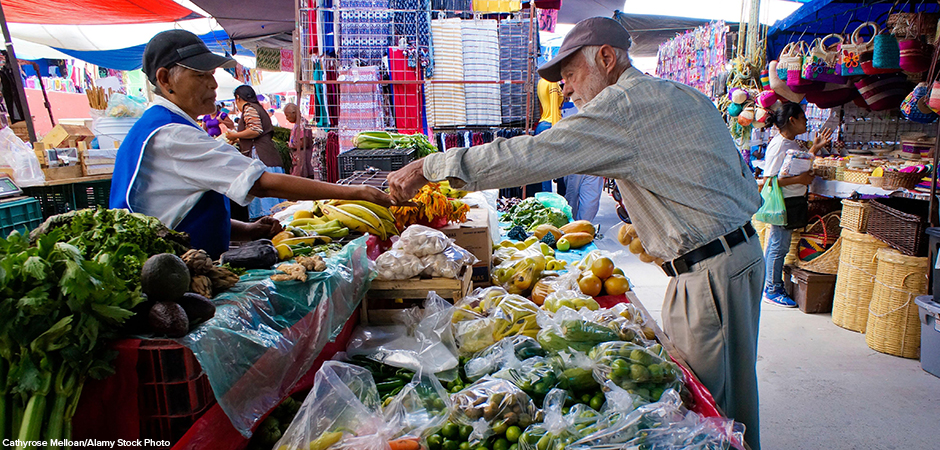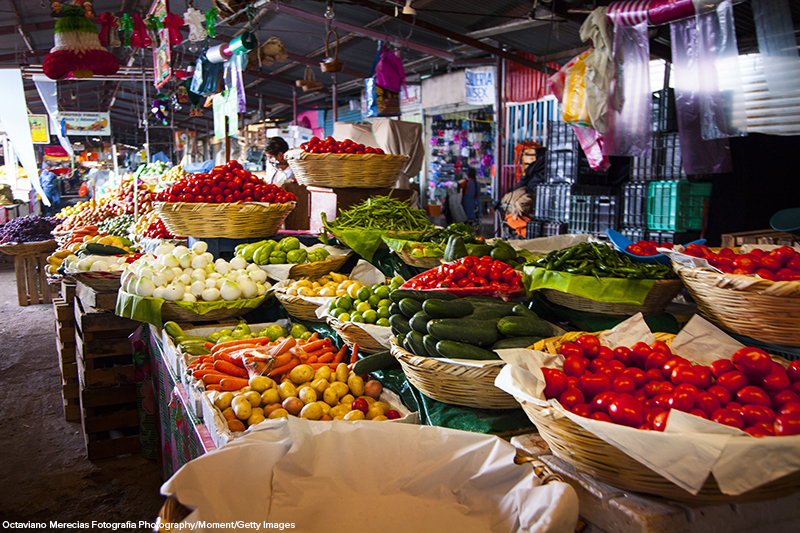
Sometimes we don’t eat all the food on our plate, or we don’t eat all our food in our refrigerators. All this leftover food ends up getting thrown out. This isn’t just a household problem, either. Restaurants and grocery stores often throw out uneaten or expired food. This problem is called “food waste,” and it happens when food that could still be eaten is thrown out. Food waste is an expensive problem. Globally, one-third of the food produced for people to eat is wasted. This is more than 1 billion pounds of food each year, worth about $1 trillion. This amount is enough food to feed nearly 2 billion people each year.
Central de Abastos’ Food Waste Solution
One market in Mexico City, Mexico, is addressing its own food waste problem. The Central de Abastos is one of the city’s largest food markets. Hundreds of small vendors sell a variety of produce, meat, and other products such as spices and flowers. Local people, as well as owners of nearby small businesses and restaurants, buy over 40,000 tons of food from the market each day. But not all of the food is sold. In 2019, it was estimated the market was throwing away over 560 tons of food daily.

To solve this issue, Central de Abastos partnered with Mexico’s Food and Agriculture Organization (FAO) to turn its unsold food into meals for the 24 million Mexicans who struggle with daily hunger. Each day, FAO officials visit the vendors at the market. They gather food donations and teach vendors about the principles of reusing and recycling. Vendors are given the option to donate unsold produce to a government-run warehouse called Itacate. Itacate, which means “leftovers,” redistributes the food to 450 soup kitchens in Mexico City. These soup kitchens serve 80,000 meals daily. The donated food helps these kitchens provide a broader variety of food choices. This results in healthier meals for those in need.
Despite these efforts, there are still challenges. While vendors are familiar with the Itacate program, edible food is still frequently discarded. Tossing it in a nearby dumpster remains more convenient than coordinating a food donation. Over 400 tons of food waste still end up in the dumpsters behind Central de Abastos daily
Plans for the Future
The Central de Abastos market has further plans to reduce food waste other than just gathering donations. The market is planning to install a biodigester. A biodigester is a machine that breaks down food and creates a gaseous fuel. This machine can process 50 tons of food a day. The fuel it generates can then be used to power city buses. This method of food disposal aligns with the concept of a circular economy. In a circular economy, valuable resources are used to their fullest potential, and nothing goes to waste.
While challenges persist, the Central de Abastos market sets an example for other markets in Mexico that aim to decrease food waste and contribute to a circular economy.
